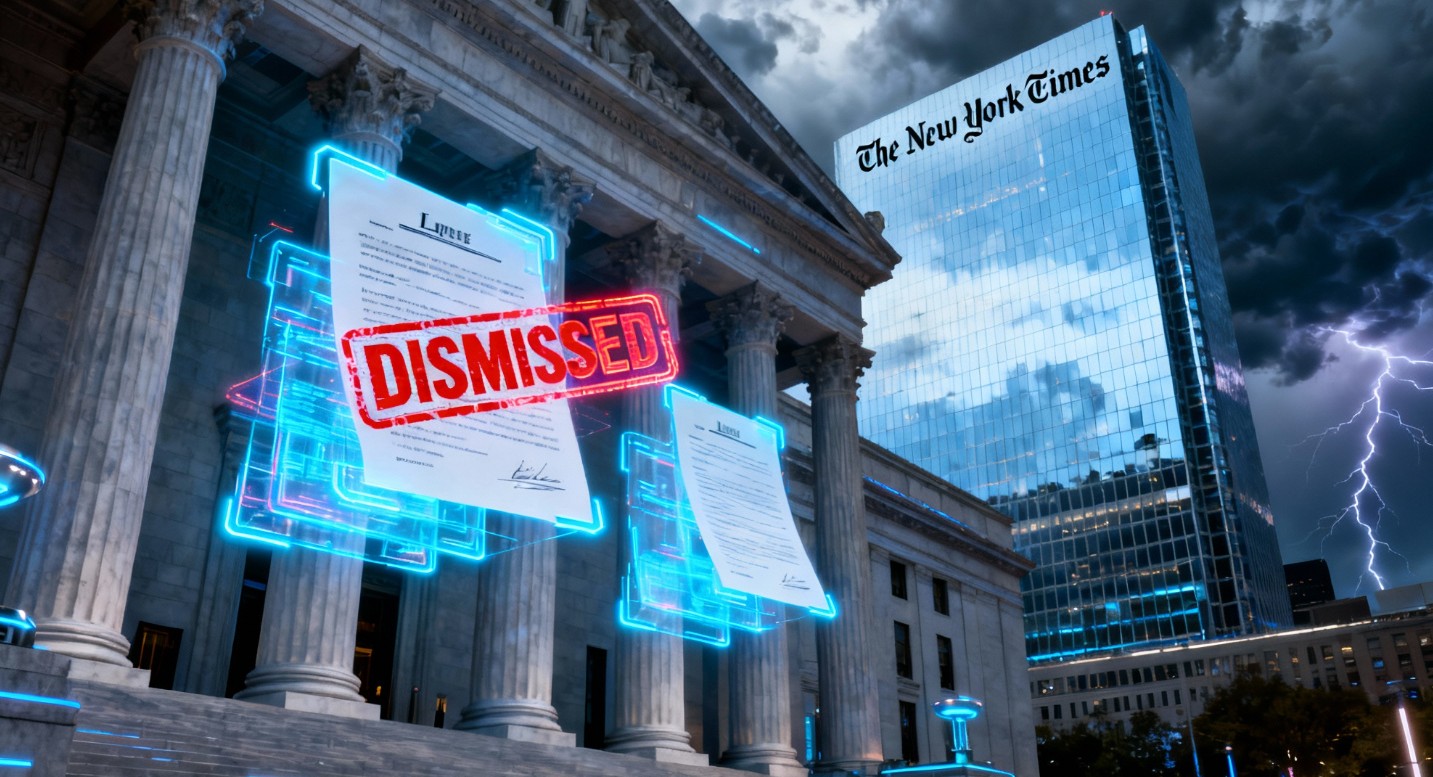
Trump’s latest attempt to muzzle the press collapsed on Friday, when a Bush appointed federal judge in Florida dismissed his sprawling $15 billion complaint against The New York Times.
Instead of a legal argument, the 85‑page suit read like a campaign speech transcribed and dumped into a federal docket. Judge Steven Merryday shredded it as “decidedly improper and impermissible,” giving Trump 28 days to try again in 40 pages or less.
When a Lawsuit Becomes a Rally Speech
Legal complaints are supposed to be tight statements of fact. Trump’s was a bloated exercise in public relations: praising himself, attacking enemies, and denouncing the Times as a Democratic Party “mouthpiece.” Merryday’s order was blunt — a lawsuit isn’t “a megaphone for public relations” or “a podium for a passionate oration at a political rally.” Trump tried to turn the courthouse into a stage. The judge shut off the microphone.
Lawfare as a Political Strategy
This is not Trump’s first media lawsuit. He’s gone after The Wall Street Journal, ABC, CBS, and others. None have stuck, but that’s not the point. These suits aren’t about winning damages — they’re about punishing newsrooms, forcing them to bleed money and time, and feeding the base with images of Trump “fighting back.” The First Amendment becomes the backdrop for a political stunt.
The Times called the filing “a political document rather than a serious legal case.” First Amendment experts agree. The real battlefield here is public trust, not a federal docket.
Courts Holding the Line — For Now
Dismissals like this matter not because anyone thinks Trump will win on appeal, but because they reaffirm a baseline: that law is not spectacle. Merryday’s ruling reinforces that democratic systems depend on process — short, plain pleadings, sober arguments — not sprawling monologues disguised as lawsuits.
But Trump, of course, thrives on the opposite. Every court loss becomes another campaign talking point about “rigged systems” and “fake news.” The media becomes both villain and prop.
The Script Trump Wants to Rewrite
Trump has 28 days to refile. His team insists they will. Whether they strip away the bombast and mount a real legal argument is almost beside the point. The suit already achieved its political purpose: reminding his supporters that the establishment is out to get him, and positioning Trump as the aggrieved fighter.
The irony is that the more the judiciary swats down these cases, the stronger the narrative of persecution becomes. In Trump’s world, even procedural rules against verbosity prove the conspiracy against him. And so the cycle spins: courts enforcing norms, Trump breaking them, and the democratic institutions caught in the crossfire.
